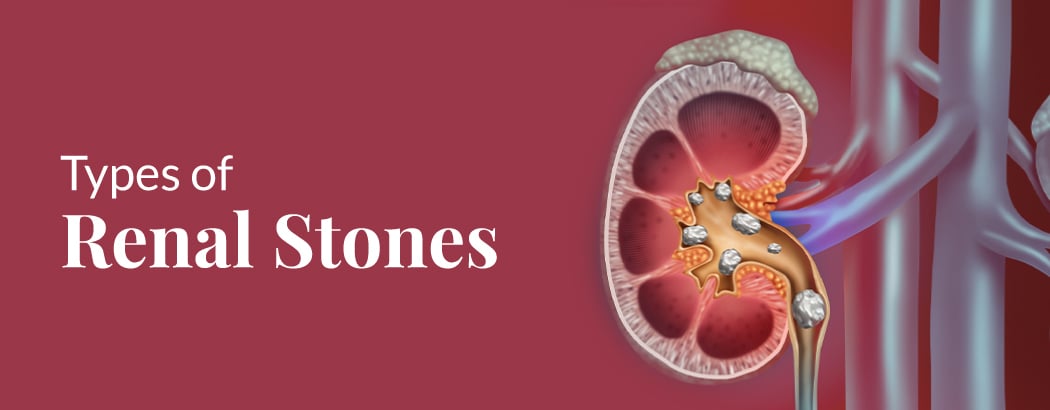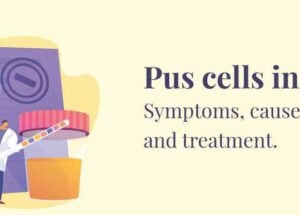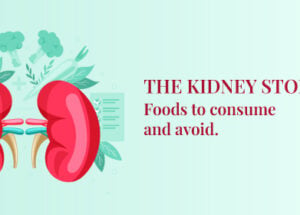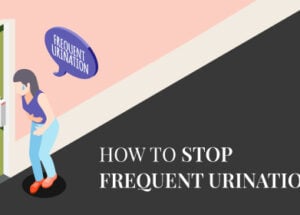Benign Prostatic Hyperplasia (BPH)
The prostate gland is found only in men. It lies below the bladder. The tube which passes urine from the bladder (the urethra) runs through the middle of the prostate. The prostate’s main function is to produce fluid which protects and enriches sperm.
Prostate enlargement
Prostate gland can enlarge when one becomes older. The enlargement is most commonly benign(non-cancerous) but can also be caused by other conditions such as prostate cancer, acute prostatitis and chronic prostatitis.
The term Benign Prostatic Hyperplasia (BPH) relates to an enlarged prostate which is not cancerous. Sometimes this enlargement causes blockage to the urine pipe running in its centre and may cause problems in passing urine and we call it lower urinary tract symptoms (LUTS)
Benign prostatic hyperplasia is considered a normal process that develops as men get older, the growth in the prostate probably starting in middle age. It may result in bothersome problems in approximately 5 out of ten men between the ages of 51 and 60 and up to 9 out of 10 men over the age of 80.

Typical symptoms include
- Difficulty in passing urine- The flow of urine is weaker, and it takes longer to empty your bladder
- Having to go to pass urine frequently or urgently
- Having to get up more than one time to pass urine during the night
- Dribbling at the end of urinary flow and sometimes incontinence
- Difficulty in emptying bladder
- Hesitancy – You may have to wait at the toilet for a while before urine starts to flow.
An enlarged prostate does not always cause symptoms. Only a quarter to a half of men with an enlarged prostate will have symptoms. Also, the severity of the symptoms is not always related to the size of the prostate. It depends on how much the prostate obstructs the urine pipe.
Please remember that not all urinary symptoms in men are due to an enlarged prostate. If treatment is delayed, then it may result in the sudden and often painful inability to pass urine (acute urinary retention) leading you to go to hospital urgently and a urine tube (a catheter) will be placed in to your bladder through urine pipe to drain the urine.
Other possible problems that can happen due to enlargement of prostate include urinary tract infection, kidney damage, passing blood in urine, urinary incontinence (overflow due to urinary blockage called chronic retention)
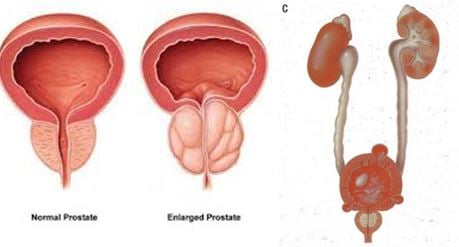
Before seeing an urologist it may be useful to complete and take a voiding diary with you. A downloadable form is given in our website. Complete the diary over a three day period. This will have information about the number of times during the day and night you pass urine, the amount passed and the number and types of drinks you have had.
Urologist will ask you about all the symptoms you have had and the medications you are already on. He will examine your prostate gland with a finger through the back passage (through the anus).
The size of your bladder may be assessed by examining your tummy (abdomen).
Urine and blood tests may be done to check the function of your kidneys, to exclude a urine infection and to check there whether there is blood in the urine not visible to your eyes.
A urine flow test (uroflowmetry) to assess how bad the obstruction to the passage of urine may be done.
An ultrasound scan to see how much urine remains in the bladder after you pass urine (void) and to look at the state of the kidneys may be done.
A prostate specific antigen (PSA) blood test may be required.
A look inside the bladder with a special telescope (cystoscopy) may very rarely be done.
What are the treatments available?
Treatment will be required if you are bothered by the symptoms. Prostate enlargement alone does not require treatment.
Treatment can be either with medicines or surgery and this will depend on the severity of symptoms.
General measures
- Consider reducing or stopping caffeine (commonly found in tea, coffee and cola) and alcohol.
- If you are a smoker then stopping smoking may significantly improve your symptoms, as nicotine in tobacco irritates the bladder
- If passing urine in the night time is a problem, reduce drinking of fluids 1-2 hours before going to bed.
Medicines
There are two groups of medicines that may help: alpha-blockers (tamsulosin and silodosin) and 5-alpha reductase inhibitors (finasteride and dutasteride). Medicines do not cure the problem but often ease if you take a medicine. Sometimes these two medicines have to be combined.

In these operations, only the central part of the prostate is removed (creating a wide channel for urine to flow through), leaving the outer part behind.
There are many different types of operation now available that can remove prostate tissue.
- TURP and Bipolar TURP/ TURIS – electric current used to remove central portion of prostate.
- Open prostatectomy – remove the obstructing central portion by an open operation- usually done for larger prostate gland.
- Laser prostatectomy – using laser to cut away the tissue -can be done by Holmium laser, Thulium Laser or Greenlight laser
- To learn more about TURP, please read leaflet named “Having a TURP”



